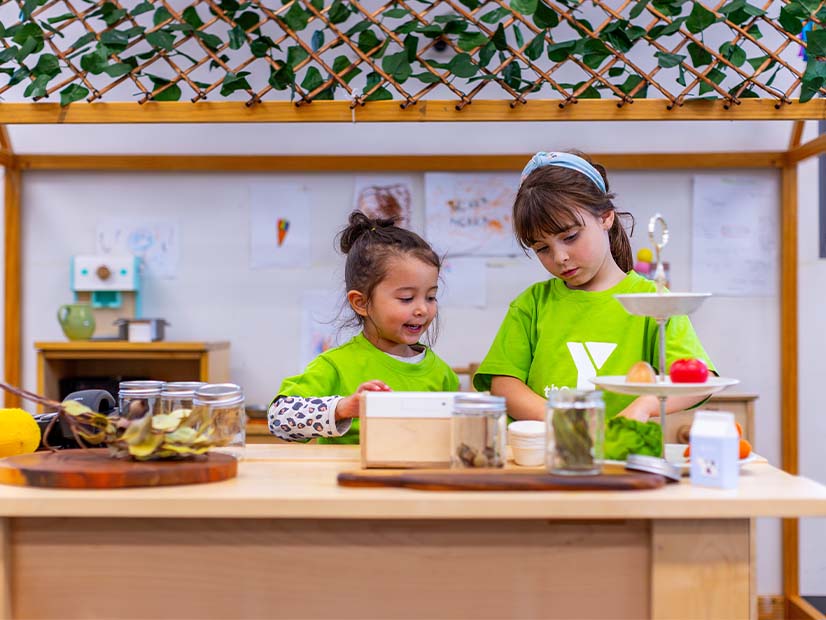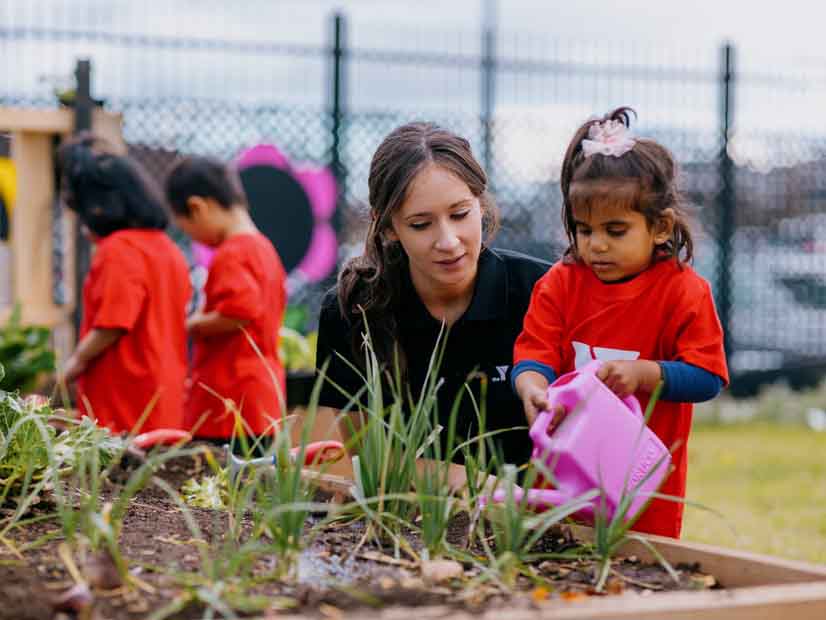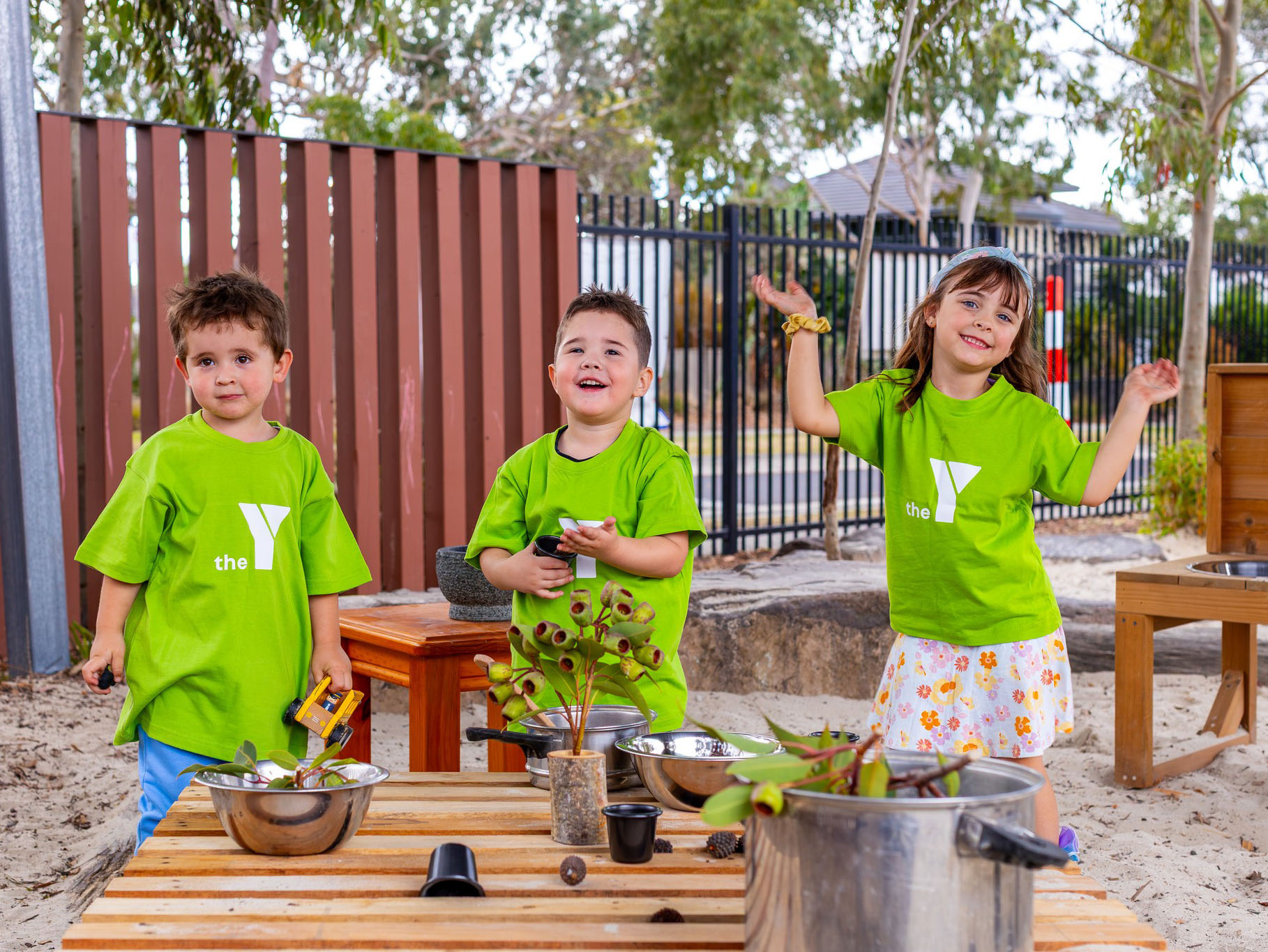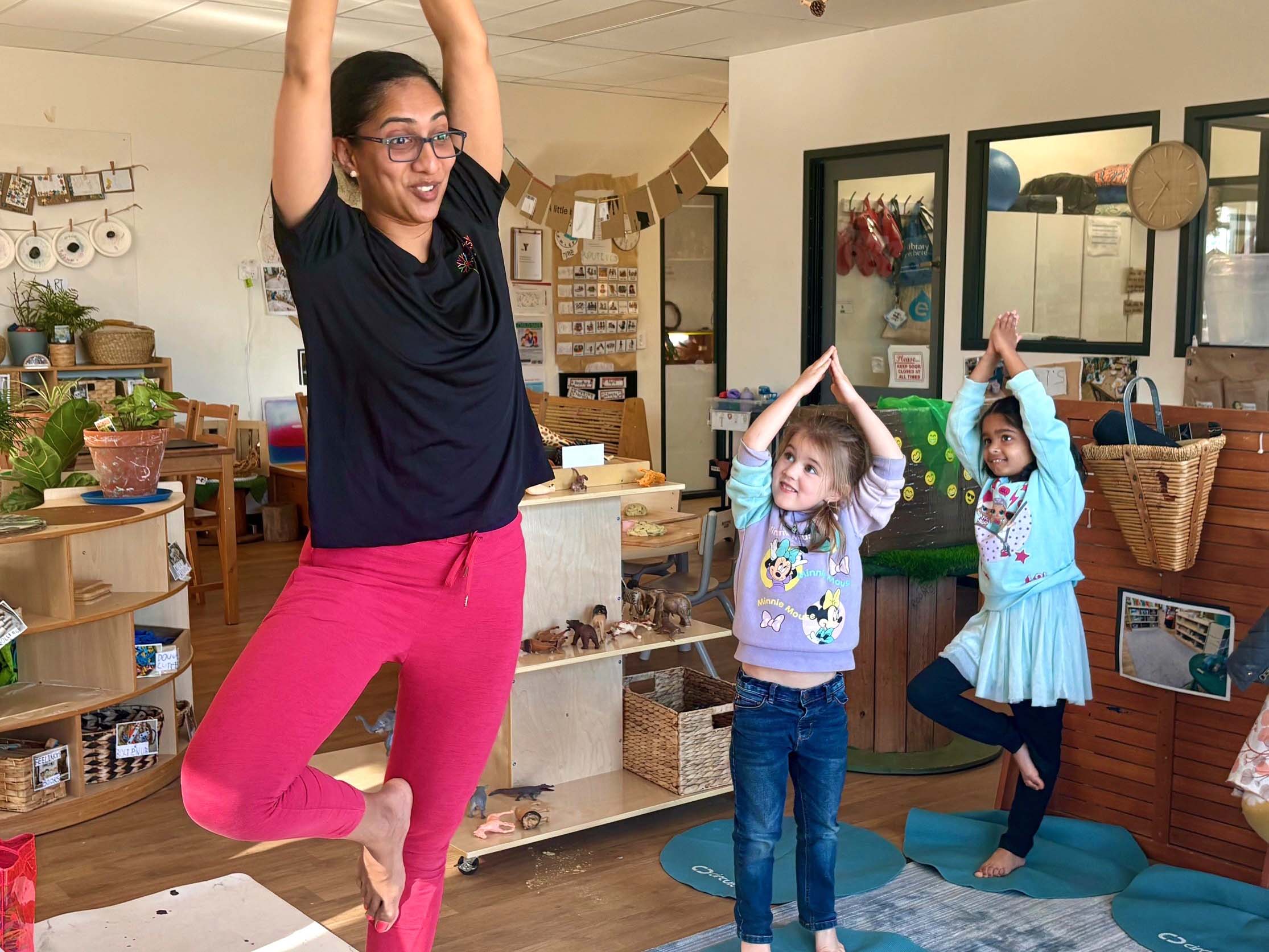Play-based learning is an educational approach where children learn through play. It uses activities and games to develop children’s cognitive, social and physical skills in a natural and engaging way.
Research shows that play-based learning is one of the best ways for children to learn and grow, as it helps them build essential skills while they simply enjoy being children.
In this blog, we’ll help you learn more about what play-based learning is and why it’s important. We provide examples of play-based learning activities, explain the numerous benefits, and share how we incorporate play-based learning into our own early learning centres.
What you'll discover:
- What is play-based learning?
- Play-based learning examples
- Why is play-based learning important?
- Benefits of play-based learning
- Our approach to play-based learning
What is play-based learning?
Play-based learning is an educational approach where children learn by playing. Rather than sitting children down for formal lessons, educators create rich play environments where learning happens naturally through exploration, experimentation and discovery.
Play-based learning examples
One of the great things about play-based learning is that there are many different ways children can play. Here are some examples of play-based learning activities your child might explore at their early learning centre, or that you can enjoy together at home:
Pretend kitchen play
Children take turns being chefs, customers or servers. They practice social skills, language, problem-solving and even basic maths like counting and sorting.
Building with blocks
Children work together to build structures with blocks, such as bridges for toy cars or houses for toy animals. This builds teamwork, motor skills and early problem-solving and engineering concepts.
Arts and crafts
Using various arts and crafts materials, and natural objects like leaves and sticks, children can create collages and other fun pieces of art. This activity allows them to develop their creativity, imagination and fine motor skills.
Exploring the outdoors
On a nature walk or by playing outside, children can hunt for different textures, shapes and colours. This encourages movement, scientific observation and social bonding.
These are just a few examples, but there are countless ways to support your child's learning through play both at home and beyond!
Why is play-based learning important?
Play-based learning is important because it supports children’s development by allowing them to learn naturally through active, hands-on experiences.
Unlike some traditional academic approaches which often expect children to sit still and passively absorb information, play-based learning recognises that children need to explore and experiment in order to understand new concepts.
By meeting children where they’re at in their developmental stage, play-based learning helps to nurture a lifelong love of learning and build confident, curious learners ready for future academic success.
Benefits of play-based learning
Here’s a more detailed look at the benefits play-based learning can bring to a child’s development, across multiple areas:
Cognitive development
Play-based learning helps children develop their thinking skills. For example, they might learn how to solve problems if their building blocks fall down or practise decision-making by choosing which materials to use for their art project. They could even develop their memory skills by remembering rules for games.
Language, literacy and numeracy
Play naturally incorporates academic skills without feeling like formal lessons. Storytelling during dramatic play helps to build language skills, while counting toys during play or clean-up introduces mathematical concepts.
Social development
Group play provides countless opportunities for social learning. Children learn to take turns and share materials and toys, which teaches cooperation and patience. They can also develop their communication and teamwork skills by working with other kids and resolving conflicts.
Mental wellbeing and emotional regulation
Play offers children safe spaces to process emotions and experiences. For example, dramatic play can help them work through fears or worries and build their self-esteem. Physical play can help to release stress and build confidence, while creative activities provide outlets for self-expression.
Physical development
Active play supports gross and fine motor development, as well as overall physical fitness. Running, jumping and climbing both build muscle strength, while manipulating small objects develops hand-eye coordination.
Creativity and imagination
Play-based learning encourages children to have fun and let their imaginations run wild. They might learn to express themselves through art, music and movement activities, or develop their storytelling abilities through dramatic play.
Instils a love for learning
Perhaps most importantly, play-based learning creates positive associations with education. As learning feels joyful rather than stressful, children are more motivated to explore and discover new things. Their curiosity is celebrated and encouraged, and they’re able to gain confidence in their abilities.
Our approach to play-based learning
At the Y, we believe in the power of play-based learning. Our safe and inclusive environments foster creativity and curiosity, allowing children to learn in ways that feel natural and engaging. Our educators carefully observe each child’s interests and needs, crafting personalised play experiences that enrich and expand their learning journey. This thoughtful approach ensures every child feels supported, valued and appropriately challenged as they grow.
Key learning outcomes
- Enhanced curiosity about the world around them
- Strong problem-solving skills through hands-on exploration
- Social confidence from positive peer interactions
- Emotional resilience through supported risk-taking
- Physical competence from active play experiences
- Creative thinking through open-ended activities
Supporting play-based learning at home
- Create discovery stations in your home with rotating materials like playdough, building blocks or art supplies.
- Follow your child's lead by paying attention to their interests and providing related materials or experiences.
- Ask open-ended questions like "What do you think will happen if...?" or "How could we solve this problem?"
- Embrace messiness as a sign of active learning and exploration.
- Celebrate efforts rather than just results to encourage continued experimentation.
- Limit screen time to create more opportunities for hands-on play.
Ready to see how play-based learning can benefit your child?
Now you know what play-based learning is and all the benefits that it can bring to your child, why not visit one of our early learning centres to see it in action?
We welcome all families to book a tour or enquire to learn more.




